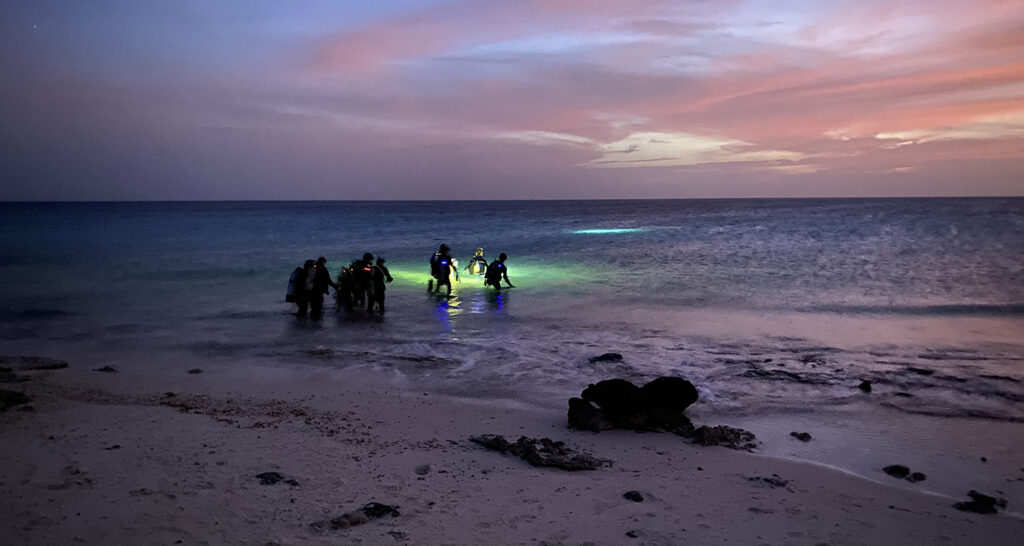Marine Sciences Research
To explore the dynamics of our global oceans — past and present — the department offers research programs across the breadth of the marine sciences.

We have specialization and research programs in the four fundamental disciplines of oceanography (physical, chemical, biological and geological), as well as in the emerging area of marine meteorology.
NC State is also a member of the Consortium for Ocean Leadership, an association based in Washington, D.C, whose members represent the nucleus of U.S. research and education in ocean science.
Marine Science Faculty – Primary Research Areas
Carli Arendt – Estuarine and coastal processes, Biogeochemical cycling
Del Bohnenstiehl – Estuarine and coastal processes, Marine geophysics & underwater acoustics, AI/ML and Data Assimilation
Kate Davis – Biogeochemical cycling, Paleoceanography, Ocean Acidification and Multiple Stressors
Dave Eggleston – Benthic studies, Estuarine and coastal processes, Marine geophysics & underwater acoustics, Extreme weather events
Roy He – Estuarine and coastal processes, Biogeochemical cycling, Harmful algal blooms & water quality, AI/ML and Data Assimilation
Lonnie Leithold – Estuarine and coastal processes, Biogeochemical cycling
Jay Levine – Benthic studies, Freshwater ecosystem health
Paul Liu – Benthic studies, Estuarine and coastal processes, Extreme weather events
Chris Osburn – Estuarine and coastal processes, Biogeochemical cycling, Harmful algal blooms & water quality, Extreme weather events
Ryan Paerl – Estuarine and coastal processes, Biogeochemical cycling, Harmful algal blooms & water quality, Plankton ecology & food webs, Freshwater ecosystem health
Astrid Schnetzer – Estuarine and coastal processes, Biogeochemical cycling, Harmful algal blooms & water quality, Plankton ecology & food webs, Freshwater ecosystem health
Carrie Thomas – Benthic studies, Biogeochemical cycling
Stacy Zhang – Estuarine and coastal ecology, Species range shifts, Extreme events, Conservation, restoration, and fisheries/habitat management